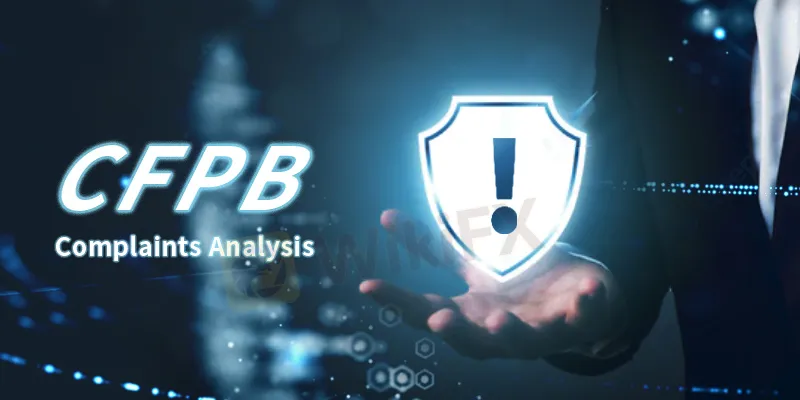简体中文
繁體中文
English
Pусский
日本語
ภาษาไทย
Tiếng Việt
Bahasa Indonesia
Español
हिन्दी
Filippiiniläinen
Français
Deutsch
Português
Türkçe
한국어
العربية
From Hacker Attack to Romance Scam: USA Crypto-assets Complaints are Soaring
Abstract:2022 Nov, the United States Consumer Financial Protection Bureau (CFPB) analyzed the month's complaints submitted to it and found that fraud, theft, hacks, and scams are significant problems in the crypto-asset market.

From October 2018 to September 2022, the CFPB received more than 8,300 crypto-assets complaints, most of which occurred in the past two years.
While the industry has been growing steadily since 2020 (cryptocurrency winter aside), complaints appear to be increasing exponentially compared to the previous two years.
The CFPB, established in 2011, is the U.S. government agency responsible for consumer protection in the financial sector. In the Bureau's report, it found that the top issue among all digital asset complaints was “fraud and scams,” which accounted for 40% of complaints during the four years under review, followed by “transaction issues” (25%) and “Money was not available when promised” (16%).
According to the report, “This issue appears to be getting worse, as fraud and scams make up more than half of 'virtual currency' complaints received thus far in 2022”. And it also emphasized that “Some consumers stated that they have lost hundreds of thousands of dollars due to unauthorized account access.”
Approches under Development to Address some of the Issues
The CFPB doubted digital asset platforms and providers and believed that the prevalence of fraud complaints raises the question of whether crypto-asset platforms are effective in identifying and blocking fraudulent transactions. Despite the security potential of certain digital assets, they could still fall victim to a range of fraud, scams, and hacks, but there were approaches in development that could address some of these issues.
In October, the BSV Bitcoin Association launched a software tool called Blacklist Manager that allows miners to freeze digital assets on the BSV blockchain after receiving a court order or such document.
In June, Tulip Trading Limited (TTL) and the Bitcoin Association settled Dr. Craig Wright's landmark lawsuit which claims that blockchain developers shall own a fiduciary and tortious liability to their users - forcing developers to take action when user tokens were lost or stolen. While the settlement agreement did not cover any particular token, it did set the base for future enforcement of regulations related to tokens lost or stolen.
Before these methods become more refined and widely available, the CFPB summarized its analysis and listed the key facts and risks for consumers of digital assets to consider:
· Crypto-assets are a common target for hacking.
· Important terms and clarifications are often buried in the Terms and Conditions.
· Arbitration clauses and class action bans may limit dispute options.
· The value of crypto-assets have and will likely continue to fluctuate greatly.
· Transactions may not be as private as imagined.
· The use of crypto-assets may violate sanctions.

Disclaimer:
The views in this article only represent the author's personal views, and do not constitute investment advice on this platform. This platform does not guarantee the accuracy, completeness and timeliness of the information in the article, and will not be liable for any loss caused by the use of or reliance on the information in the article.
Read more

Indonesia officially joins the BRICS countries
Indonesia's decision to join the BRICS group will not only enhance economic cooperation within BRICS countries but is also expected to have a profound impact on global trade, investment, and the currency system.

Attention! Goldman Sachs Cuts Gold Target to $2910
As the Fed slows rate cuts, gold's price growth may be limited. Goldman Sachs revised its short-term forecast, expecting gold to reach $3,000 per ounce by mid-2026.

Inflation Rebounds: ECB's Big Rate Cut Now Unlikely
German inflation has surged once again, exceeding the 2% target for the second consecutive time. The overall inflation rate for the Eurozone, which is expected to be released on Tuesday, is also likely to show a slight increase, diminishing expectations for a large interest rate cut by the European Central Bank (ECB).

Malaysian Pilot Loses RM1.36 Million in UVKXE Investment App Scam
A Malaysian pilot, aged 50, has suffered a staggering financial loss of RM1,366,885 to a fraudulent investment scheme promoted via Instagram. The scheme involved an app called UVKXE, which claimed to offer attractive investment opportunities.
WikiFX Broker
Latest News
Ghana Trader Jailed for $300K Forex and Crypto Scam
US Dollar Surge Dominates Forex Market
Hong Kong Police Bust Deepfake Crypto Scam Syndicate Involving $34 Million
Is it a good time to buy Korean Won with the current depreciation?
Pepperstone Sponsored the "Aston Martin Aramco Formula One Team"
ACY Securities Integrates MetaTrader 5 to Enhnace Copy Trading Service
Soegee Futures Review: Should You Trust This Broker?
Malaysian Pilot Loses RM1.36 Million in UVKXE Investment App Scam
Indonesia officially joins the BRICS countries
Attention! Goldman Sachs Cuts Gold Target to $2910
Currency Calculator






